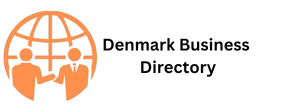Influencer Marketing: Collaborating with individuals who have a significant following and credibility within your niche to promote your products or services.Social Listening: Monitoring social media conversations to understand brand sentiment, identify trends, and discover customer insights.
Why it matters in 2025: Social media platforms poland phone number list are constantly evolving, with new features and algorithms emerging regularly. Real-time engagement, authentic brand voice, and leveraging emerging formats like live shopping and immersive experiences are crucial for staying relevant and connected with your audience.
4. Pay-Per-Click (PPC) Advertising:
PPC advertising allows businesses to pay to display ads on search engines (e.g., Google Ads, Bing Ads) and other online platforms. It offers instant visibility and highly targeted reach, making it an excellent complement to organic efforts. Key aspects include:
- Keyword Research: Identifying relevant keywords that your target audience is searching for.
- Ad Copywriting: Crafting compelling and concise ad copy that encourages clicks.
- Landing Page Optimization: Ensuring the landing page your ad directs to is relevant, user-friendly, and optimized for conversions.
- Bid Management: Strategically bidding on keywords to maximize ROI.
- Audience Targeting: Utilizing demographic, geographic, interest-based, and behavioral targeting to reach the right people.
- A/B Testing: Continuously testing different ad variations, headlines, and calls to action to optimize performance.
Why it matters in 2025: While organic reach can take time, PPC provides immediate results and precise control over targeting. With advancements in AI and machine learning, PPC platforms are becoming even more sophisticated, offering enhanced automation and optimization capabilities for maximum ad spend efficiency.
5. Email Marketing: The Power of Direct Connection and Nurturing
Despite the rise of newer channels, email phone numbers and influencer marketing arketing remains one of the most effective and highest ROI digital marketing strategies. It allows for direct, personalized communication with your audience, fostering loyalty and driving conversions. Key components include:
- List Building: Strategically collecting email addresses through opt-in forms, lead magnets, and content upgrades.
- Segmentation: Dividing your email list into smaller, targeted groups based on demographics, interests, behavior, or purchase history.
- Personalization: Tailoring email content and offers to individual subscribers based on their preferences and past interactions.
- Automation: Setting up automated email sequences for welcome series, abandoned carts, lead nurturing, and re-engagement campaigns.
- Campaign Management: Designing engaging email templates, crafting compelling subject lines, and optimizing for mobile devices.
- Analytics & Optimization: Tracking open rates, click-through rates, conversions, and continuously refining your campaigns based on data.
Why it matters in 2025: Email marketing offers unparalleled personalization and automation capabilities. It’s a powerful tool for building strong customer relationships, driving repeat purchases, and delivering highly targeted messages that resonate with individual subscribers, even amidst privacy shifts.
6. Affiliate Marketing: Leveraging Partnerships for Expanded Reach
Affiliate marketing is a performance-based marketing strategy where businesses reward one or more affiliates for each visitor or customer brought by the affiliate’s own marketing efforts. It’s a scalable way to expand your reach and drive sales without significant upfront advertising costs. Key aspects include:
- Finding Relevant Affiliates: Partnering with individuals or businesses whose audience aligns with your target market.
- Offering Attractive Commissions: Incentivizing affiliates with competitive payouts for driving conversions.
- Providing Marketing Assets: Supplying affiliates with banners, links, product images, and other resources to promote your offerings.
- Tracking and Reporting: Utilizing robust tracking systems to accurately attribute sales and commissions to affiliates.
- Building Relationships: Nurturing strong relationships with your affiliates to ensure long-term success.
Why it matters in 2025: As consumers afghanistan business directory increasingly trust recommendations from peers and trusted sources, affiliate marketing offers a powerful way to tap into new audiences through established networks. It’s a cost-effective and scalable strategy for businesses looking to expand their footprint.
7. Marketing Analytics & Data Measurement: The Compass for Growth
The digital realm is rich with data, and effective digital marketing hinges on the ability to collect, analyze, and interpret this information to inform strategic decisions. Marketing analytics provides the insights needed to understand what’s working, what’s not, and where to optimize for better results. This includes:
- Website Analytics: Using tools like Google Analytics to track website traffic, user behavior, conversion rates, and bounce rates.
- Social Media Analytics: Monitoring engagement, reach, impressions, and follower growth on various social platforms.
- Email Marketing Metrics: Tracking open rates, click-through rates, conversion rates, and unsubscribe rates.
- PPC Campaign Performance: Analyzing click-through rates, cost-per-click, conversion rates, and return on ad spend (ROAS).
- Customer Relationship Management (CRM) Data: Integrating marketing data with CRM systems to gain a holistic view of customer journeys.
- A/B Testing & Multivariate Testing: Continuously experimenting with different elements of your marketing campaigns to identify optimal performers.
Why it matters in 2025: In a data-driven world, decisions without analytics are akin to navigating blindfolded. AI and machine learning are enhancing analytical capabilities, allowing for more predictive insights and real-time optimization. Businesses that prioritize data measurement and continuous optimization will gain a significant competitive edge.
Conclusion: Building a Holistic Digital Ecosystem
The digital marketing landscape of 2025 is complex yet incredibly rewarding for those who embrace a strategic, integrated approach. By mastering these seven pillars—SEO, Content Marketing, Social Media Marketing, PPC Advertising, Email Marketing, Affiliate Marketing, and Marketing Analytics—businesses can construct a powerful digital ecosystem that attracts, engages, converts, and retains customers. It’s not about isolated tactics but about orchestrating these elements into a cohesive strategy that delivers measurable results and propels your business toward sustained online success. Embrace the evolution, leverage the tools, and connect with your audience in meaningful ways to truly thrive in the digital age.
